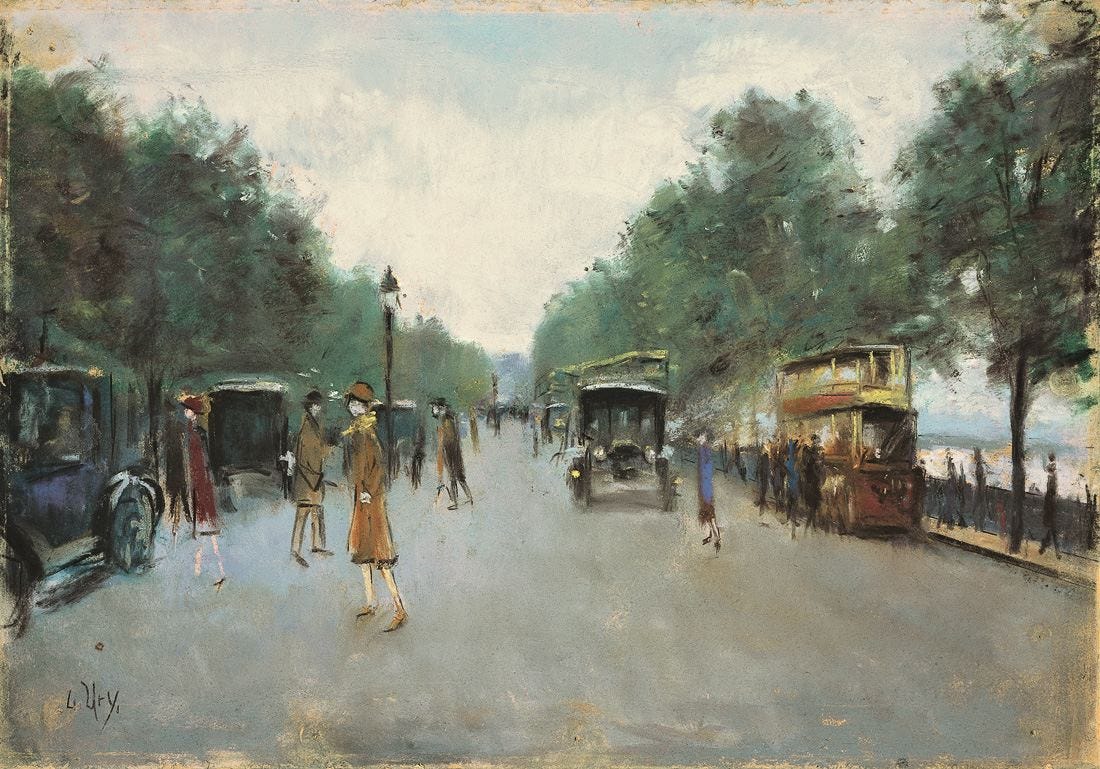
A.A. Milne (1882–1956) needs no introduction. If anything, he needs a disintroduction. His Winnie the Pooh books are so well known that they intrude in our vision, like rainbow glasses that make everything by the man seem giddy, gooey, and sappy. The truth is that Milne was very good at children’s art, and what we need is to cast aside the lenses that popular success, aided by the Disney corporation, have taught us to use when reading the man. We need to start over, reading Milne afresh.
Take, for example, the poem “Disobedience” in his 1924 collection When We Were Very Young. As in much good children’s art, there’s a joke in the poem for children, and another joke for adults. The joke that children love is simply that the disobedient one is not the sensible child but the foolish mother. Despite the command from her responsible three-year-old son, telling her not to go down to the end of the town, the willful adult diso…
Keep reading with a 7-day free trial
Subscribe to Poems Ancient and Modern to keep reading this post and get 7 days of free access to the full post archives.



